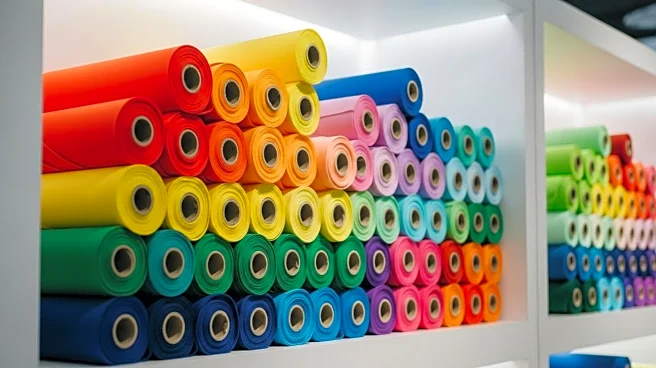What is the story about?
What's Happening?
The fashion industry is facing increased scrutiny over its environmental impact as polyester production reaches record levels. According to a report by Textile Exchange, global textile production rose to 132 million tonnes in 2024, driven largely by polyester, which accounts for 43% of emissions from fiber production. The rise of ultra-fast-fashion brands like Shein and Temu has contributed to increased production of synthetic materials, exacerbating the industry's carbon footprint. Despite efforts to increase the use of recycled polyester, virgin production continues to outpace recycled fiber, leading to a decline in recycled polyester's market share.
Why It's Important?
The fashion industry's reliance on polyester, a plastic-based material, is contributing significantly to global greenhouse gas emissions. As the industry struggles to meet its goal of halving emissions by 2030, the continued growth of virgin polyester production poses a major challenge. The environmental impact of fast fashion is becoming increasingly critical as scientists warn of the urgent need to address climate change. Brands are under pressure to adopt more sustainable practices, but the current trajectory suggests that significant changes are needed to reduce the industry's carbon footprint.
Beyond the Headlines
The fashion industry's environmental impact raises ethical concerns about sustainability and consumer responsibility. The dominance of polyester highlights the need for innovation in material production and recycling processes. As consumers become more aware of the environmental consequences of their purchasing decisions, brands may face increased demand for transparency and sustainable options. The industry's response to these challenges could shape its future and influence broader efforts to combat climate change.















